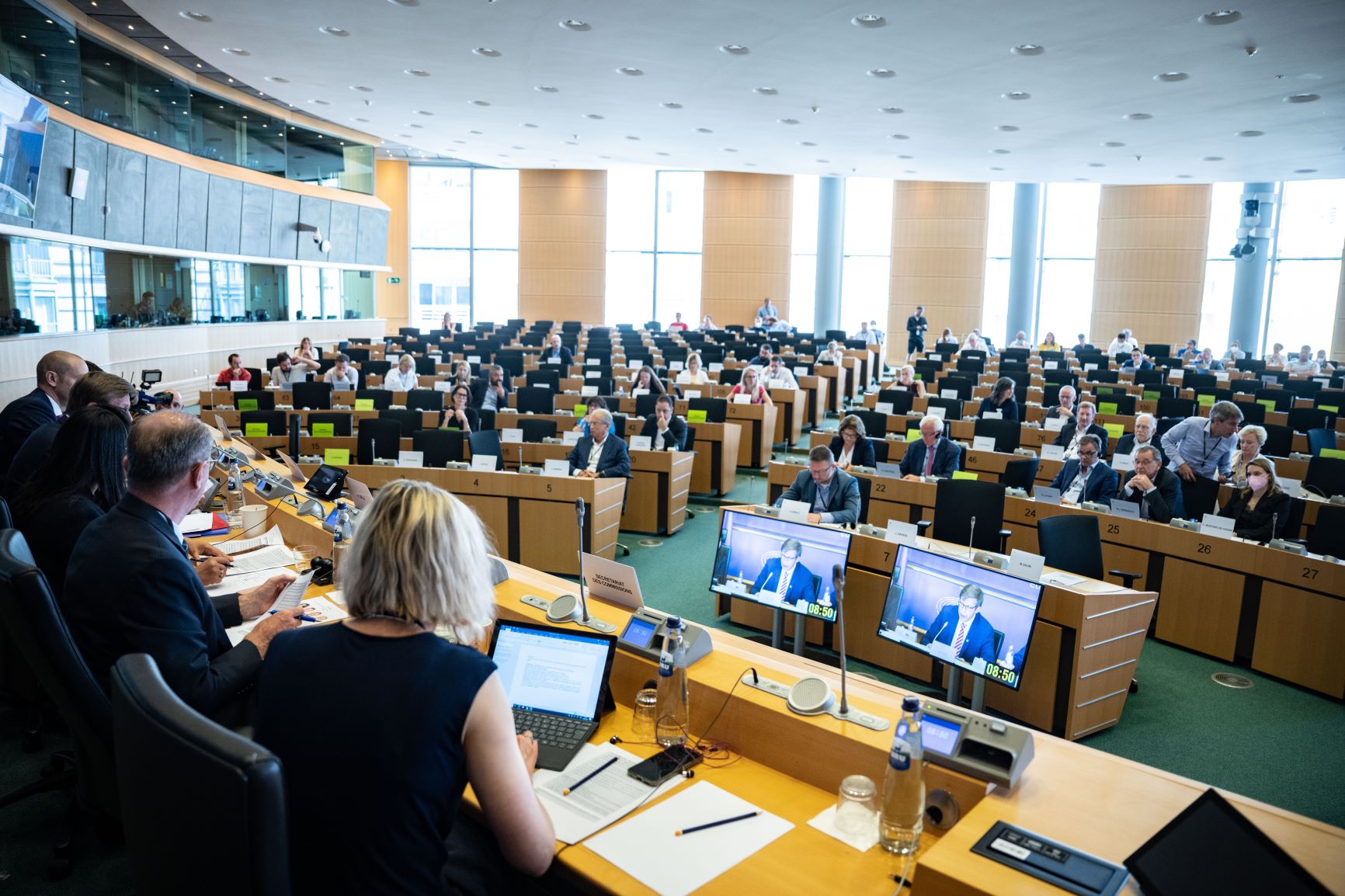 The European Parliament’s Transport Committee (TRAN) has approved the agreement on the Alternative Fuels Infrastructure Regulation (AFIR) by 33 votes to one and seven abstentions. The regulation now includes railway transport, a “a key missing element not foreseen in the European Commission’s proposal. This will encourage member states to consider the roll-out of alternative fuels infrastructure on the rail network, contributing to the achievement of the EU Green Deal objectives,” the European Rail Supply Industry (UNIFE) and the Community of European Railway and Infrastructure Companies (CER) say.
The European Parliament’s Transport Committee (TRAN) has approved the agreement on the Alternative Fuels Infrastructure Regulation (AFIR) by 33 votes to one and seven abstentions. The regulation now includes railway transport, a “a key missing element not foreseen in the European Commission’s proposal. This will encourage member states to consider the roll-out of alternative fuels infrastructure on the rail network, contributing to the achievement of the EU Green Deal objectives,” the European Rail Supply Industry (UNIFE) and the Community of European Railway and Infrastructure Companies (CER) say.
“The development of alternative fuel technologies is also important for railways, where direct electrification of a section is not possible for reasons such as for cost-efficiency of the service. Different technologies are available to the rail sector to shift away from diesel trains, including direct electrification, battery powered trains and hydrogen applications. The development of these technologies requires the deployment of suitable recharging and refuelling infrastructure in member states,” the regulation says.
Welcoming the conclusion and outcome of the negotiations of the Alternative Fuels Infrastructure Regulation, UNIFE and CER consider the inclusion of rail under the document’s scope to be a step in the right direction, in particular due to the relevant rail related provisions.
The regulation says that the member states shall assess the development of alternative fuel technologies and propulsion systems for rail sections that cannot be fully electrified for technical or cost-efficiency reasons, such as hydrogen or battery-electric train and, if relevant, any refuelling and recharging infrastructure needs.
By 1 January 2025, each member state shall prepare and send to the Commission a draft national policy framework for the development of the market as regards alternative fuels in the transport sector and the deployment of the relevant infrastructure. Thus, on rail transport, the national policy framework shall contain an overview of the state of play, perspectives, and planned initiatives for deployment of infrastructure including targets, key milestones and financing needed, for hydrogen or battery electric trains on network segments that cannot be electrified.
Part of the regulation, the European Commission will issue recommendations on each member state final national policy framework and if the member state concerned does not address a recommendation or a substantial part thereof, it shall provide a written explanation to the Commission.
“AFIR therefore sets an appropriate regulatory framework to sustain the investments made by railway suppliers, operators and infrastructure managers alike in innovative alternatives to diesel, facilitating European technology leadership in this domain,” UNIFE and CER conclude in a joint press release.
The European rail industry is “pleased to see that EU institutions, in particular thanks to the efforts of the European Parliament, have finally included rail in the scope of AFIR. Even though the level of ambition could have been higher, the Regulation will create an important incentive and visibility for the industry to continue its investments in developing competitive alternatives to diesel on lines that will not be electrified,” UNIFE Director-General Philippe Citroën said.
“The European railway and infrastructure companies look forward to national plans to deploy alternative fuels to rail. In the short-run, however, rail’s operating costs and in particular electricity costs need to be carefully assessed, and in today’s situation support measures are needed to make sure that rail’s intermodal competitiveness is not hampered and that a shift to diesel traction is avoided,” CER Executive-Director Alberto Mazzola said.
Share on:



